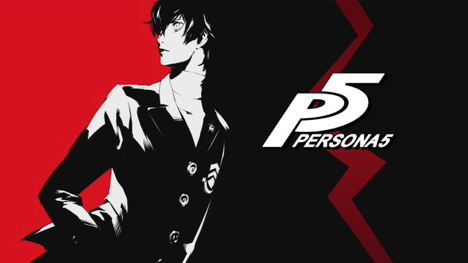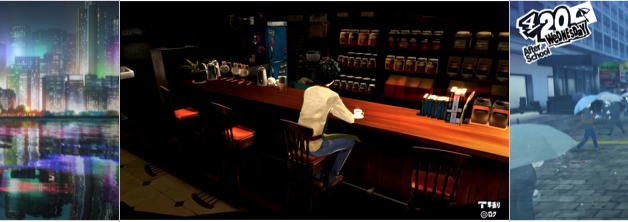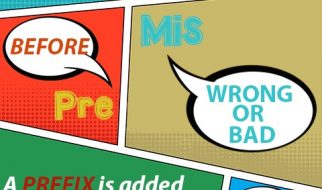Shin Megami Tensei: Persona 5 brings popular music into the world of video games
![]()
 Persona 5 is a 100-hour long game, and the soundtrack is there to back that up.
Persona 5 is a 100-hour long game, and the soundtrack is there to back that up. Person 5 Menu Screen
Person 5 Menu Screen
Atlus?s Persona 5 is a game about corruption, human nature, and, most of all, the everyday life of a Japanese high school student. After intervening in an assault by a powerful politician who then proceeds to pull some strings, the main character ends up being placed on probation and sent to a new high school in an unfamiliar city. Rumors have begun to circulate about the danger the main character presents which makes them a bit of a misfit, and initially a loner. Though Persona 5 excels in storytelling through emotion, at the end of the day, it is still a game about going to a new high school. Nevertheless, the music will have players ready and excited to go to a new and unknown school.
Atlus?s Shin Megami Tensei franchise, the parent series of the Persona games, has been around since 1992. After 25 years of tinkering, an already great and beloved series has reached a new level. With the 4th game of the Persona series, Persona 4, released 9 years prior to Persona 5, Atlus has had plenty of time to come as close as any to embodying the word ?style? with Persona 5. Persona 5 takes the franchise in a new direction musically, moving away from the more synthetic digital style and embracing a more cool and organic jazz sound, powered by rich vocals from the immensely talented Lyn Inaizumi. Doubling down on the mission of the Persona series ? to merge video games and popular culture ? Persona 5 takes this to the next level with composer Shoji Meguro. Meguro takes the sound and aesthetic of Persona 5 ? and all of video game music ? to a new height.
Persona 5 takes on a challenge video game composers have been struggling with since video games have had music: singing.
In the past, games have done everything to avoid a clear vocal melody since the voice naturally attracts attention to itself and away from what?s happening in the game. However, Persona 5 throws that style book out of the window within a minute of the game. Persona 5?s opening track, ?Wake Up, Get Up, Get Out There? serves as a template for the music for the rest of the game. Persona 5 takes the ideas started in this song and runs with them by creating a massive 110 tracks of diverse and fantastic audio. There?s a song for every mood, whether it be relaxing and contemplative (e.g.,?Beneath the Mask?) or intense and danger-inducing (e.g., ?Life Will Change?). Most importantly, Meguro wrote a soundtrack for a game that includes mundane tasks that most people mindlessly overlook. Like Andrew Webster states, ?The Persona 5 soundtrack makes everyday life feel cool.?
The most common word used to describe Persona 5 is stylish. From the art to the music, to even the animations in the menu screens, there?s a reason there was a 9-year gap since Persona 4. Atlus was perfecting a formula to create a modern aesthetic masterpiece, unlike any game before it. The opening cutscene takes you through an animated short set to a preview of the music for the game. ?Wake Up, Get Up, Get Out There,? the title track of the game, instantly energizes the player and encourages them to do just that: wake up, which is not only for the character who is starting a new day but also for the player starting the game. ?Wake Up, Get Up, Get Out There? starts with a fast but smooth progression on an electric piano accompanied by an alternating bass and drum line before quickly taking off with the drums ramping up to the introduction of strings before relaxing briefly into the dissonant verse. The track then really takes off in the chorus, bringing all the elements together as Inaizumi charges the player: wake up, get up, get out there!
Persona 5 is a 100-hour long game, and the soundtrack is there to back that up. Through both size and diversity of style, Persona 5 hits all the marks. Due to the nature of the game, the player will spend dozens of hours hearing the same tracks on repeat. However, because of the complexities of the tracks, they never get old ? even with repetitive gameplay elements such as battling your way through massive dungeons, frequent cuts between various dungeon themes, and the single battle theme (aptly named ?Last Surprise?) present throughout the game. Beginning with strings accompanied with some simple drums, ?Last Surprise? moves into a subdued and jazzy verse before exploding into a pop-inspired and extremely catchy chorus that still proves enjoyable to listen to even after countless battles.
 https://www.youtube.com/watch?v=eFVj0Z6ahcI
https://www.youtube.com/watch?v=eFVj0Z6ahcI
The bulk of the soundtrack is comprised of jazz-inspired pop songs, including bass, electric piano, electric guitar, drums, and strings topped off with Inaizumi?s powerful voice. Persona 5?s music explores older styles such as in the classical aria, ?Aria of the Soul,? and newer genres such as the lo-fi/trip-hop inspired ?Beneath the Mask?. ?Beneath the Mask? is the perfect song for a relaxing rainy day or a low-key night. Persona 5 takes advantage of the versatility of the track as it plays in three different settings. The full track is used as the background music for Tokyo during the night, where the player can do things such as work part-time jobs, shop, and eat. The second use is the main daytime music which trades out the vocals for an electric organ. Finally, a drum-version plays on rainy days, the perfect time for the player to relax and study for the always impending midterms.
 Tokyo at night, Cafe LeBlanc, Station Square (Raining)
Tokyo at night, Cafe LeBlanc, Station Square (Raining)
The rare foray into more typical video game music comes from the classical piece, ?Aria of the Soul.? This piece is also, coincidentally, used in every game since Persona 3. Containing a sparse arrangement of strings, piano, and soprano voice, ?Aria of the Soul? is played in the Velvet Room ? a location integral to both the mechanics and plot of the game. The Velvet Room also represents a place in the player between consciousness and subconsciousness, which is illustrated through the haunting and mysterious melody matched perfectly with the rising and falling intensity of the accompaniment.
?Life Will Change? is another example of versatility in Persona 5. After completing a dungeon, the player must issue a calling card to the owner of the dungeon before taking on the final boss of the area. ?Life Will Change? then takes over the soundtrack for the foreseeable future. ?Life Will Change? is an anthem for changing both the lives of the targets as well as changing society as a whole within Persona 5. In addition, this track does something special: it serves as an override to the current dungeon music as well as the battle theme. Initially, ?Life Will Change? is a fast-paced instrumental rock song with a quick electric guitar introduction followed by another remix of the themes littered throughout the rest of Persona 5?s soundtrack. This changes as the game goes on. As the player approaches Persona 5?s conclusion, the track is amped up again with the return of Inaizumi?s voice belting lines such as, ?fire in every breath, fire inside your head, your heart,? to propel the player to the boss of the dungeon and even further increase the excitement of running to the final steps of completing each dungeon.
The Shin Megami Tensei: Persona series has been an innovator in the Japanese role-playing game genre in all respects, including the previous uses of voice in the series. Persona 4?s jazz-pop song, ?Heartbeat Heartbreak,? marked the turning point in the franchise?s sound into the jazz-inspired and perfectly executed soundtrack for Persona 5. With 25 years of experience and counting, Atlus has left an impact on game soundtracks that will last for many years to come. The soundtrack for the highly-anticipated Persona 6 will continue the upward trend and somehow find a way to be even better than its predecessors.


